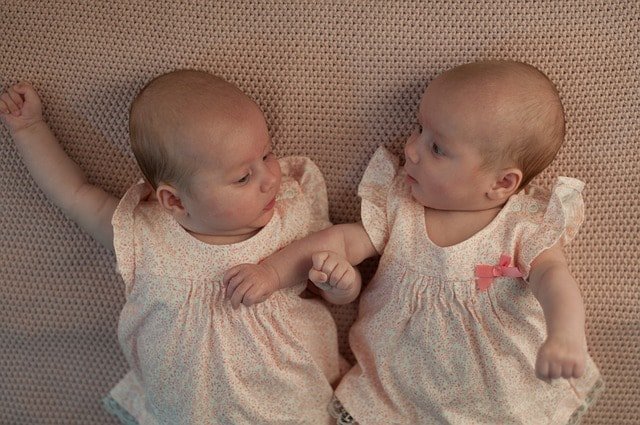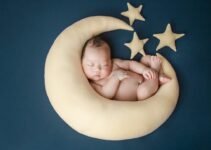 Finding out you’re pregnant can be amazing. You start taking your vitamins; you start thinking of handling a child (especially your first), etc.
Finding out you’re pregnant can be amazing. You start taking your vitamins; you start thinking of handling a child (especially your first), etc.
Before you go for your ultrasound you might be wondering – what are the possibilities of having twins. And what are the possibilities of them being identical?
Or you are lying on the table with the ultrasound technician seeing two heartbeats, and two sets of legs and hands.
But what are the chances of having identical twins either with IVF or natural pregnancies? Let’s dive further in and see.
How do Twins Occur?
Some women really want to have twins or they know it runs in their family and they want to be a part of that. Then there are others who don’t want them because well, that’s just more work.
Twins occur either when one egg is fertilized and splits into two, producing identical twins, or two eggs are fertilized forming fraternal twins. There are some reasons as to why you are more likely to have twins than your friends.
Fertility treatments can increase the likelihood of having twins because of the increased number of eggs produced or there is more than one embryo being inserted into the uterus.
Increased weight can also increase the chances of having twins, even if having twin deosn’t genetically run in the family. According to Huggies[1], if your BMR is over 30, you are more likely to have two little ones running around rather than just one.
Another factor that increases the chance of having twins is the age of mother. You’re more likely to have twins if they conceive after the age of 35 [2].
And genetics, which can essentially play a huge role in having twins. If you are from a family that twins run in, especially on your mother’s side, you are more likely to have them yourself. [3]
These are just the multitude of reasons that you could be destined to have twins, but what are the numbers?
Statistics of Having Identical Twins
Let’s get into the numbers here and take into consideration what are the chances of having identical twins is.
The chances of having of having identical twins is 1 in every 285 pregnancies [4]. But if you have had twins already, your chance of having another set quadruples.
Now the chance of having identical twins is lower than that of having fraternal (non-identical) twins. The statistical chance of having fraternal twins is 1 in 90, and with fertility treatments, it’s 1 in 38.[3]
But if you’re a twin or have a family history of twins, the odds of having identical twins remain the same while that of having fraternal twins rise to about 1 in 17 [4] [5].
Facts About Identical Twins
Identical twins are formed when one fertilized egg splits into two, forming two identical babies with same genetic material, whereas fraternal twins are formed when two ova are fertilized by two different sperms and have different genetic makeup.
There is also a new “phenomenon” that is called semi-identical twins, which is when two sperm fertilize one egg that then splits. So these “twins” share the DNA of the mother but not the father.[6] Interesting if you ask me.
Benefits of Twins (Identical Ones as well)
As a parent, it can be daunting to have twins and identical ones for sure. Telling them apart would be a difficult task and will require a system of marking to determine who is who.
While it is a struggle for some, it’s also a blessing. As a parent, you get to hear multiple heartbeats, increased feelings that are felt earlier as well.
You also get to watch them grow up together and fascinate the idea of them having their very own language, their own way of talking to each other.
While they are similar, they are also so very different because they are still two individuals. You may also worry about how you are going to love each one as much as the other. It just happens.
There is no love greater than a parents love for their children, as just as those going from one to two, their heart grows to accommodate that of the new sibling, and yours will too.
It’s a journey that is special because while many people have one child at a time, you have two. Yes, there are risks of potential problems during birth and pregnancy but it will be worth it in the end.
They may not be able to predict the likelihood that you will have identical twins, but if you do, prepare yourself for an amazing ride.
References
- Huggies. Chances of Having Twins. https://www.huggies.com.au/childbirth/multiple-births/twins/chances
- https://www.webmd.com/baby/news/20060222/older-women-more-likely-to-have-twins
- https://www.babycenter.com/0_your-likelihood-of-having-twins-or-more_3575.bc
- Twin Statistics. twinstwice.com (offline)
- https://www.verywellfamily.com/what-are-the-odds-what-are-my-chances-of-having-twins-2446682
- https://www.verywellfamily.com/what-are-my-chances-of-having-twins-1960180
- https://www.verywellfamily.com/what-are-semi-identical-twins-2447180



